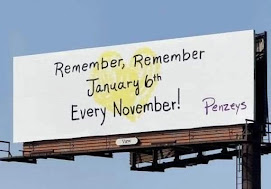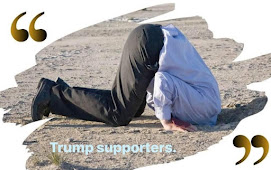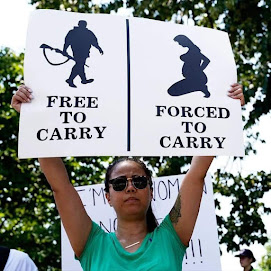
The Top 10 Drug Policy Stories of 2008
1 - Massachusetts Voters Overwhelmingly Pass Marijuana DecriminalizationMarijuana legalization still appears a distant chimera, but three decades after the initial spurt of states decriminalizing marijuana, we may be seeing the beginnings of a new round of successful decriminalization moves. Nevada decriminalized, or defelonized, in 2001, becoming the first state to do so since the 1970s, and in November, Massachusetts approved a decrim initiative with 65% of the popular vote. It goes into effect today, making the Bay State the 12th state to make the possession of small amounts of pot an infraction, not a crime.
 2 - Michigan Voters Overwhelmingly Pass Medical Marijuana
2 - Michigan Voters Overwhelmingly Pass Medical MarijuanaMedical marijuana continues its long march across the states. The biggest victory this year came in Michigan, where voters approved a medical marijuana initiative with 63% of the vote, making Michigan the 13th medical marijuana state and the first in the Midwest. That will undoubtedly help ongoing legislative efforts in states like Kansas, Illinois, Minnesota, and Ohio. In Minnesota, a bill that had passed the Senate in 2007 stalled in the House in the face of veto threats, while in New York, the Assembly passed a medical marijuana bill only to have it see no action in the Senate. Kansas saw its first legislative hearing ever on a medical marijuana bill, although that bill died a few weeks later. Last month, a New Jersey medical marijuana bill won a Senate committee vote and is still alive.
3 - NORA Goes Down to Defeat in California
If marijuana fared well in the November elections, the same thing can't be said for a massive sentencing reform initiative in California. The Non-Violent Offenders Rehabilitation Act (NORA) would have broadened and deepened the Proposition 36 sentencing reforms passed in 2001, but, faced with powerful and deep-pocketed opponents, including drug czar John Walters, the California prison guards' union, and drug court professionals, NORA went down in defeat with only 39% of the vote.
 4 - Signs of Life in Congress
4 - Signs of Life in CongressIn February, efforts to finally begin to undo the crack-powder cocaine sentencing disparity got a boost when a House committee held hearings on it. The next month, the Senate passed the Second Chance Act, which had already been passed by the House and which will provide assistance to prisoners reentering society. President Bush signed that bill in April. Even the Republicans seem to have come around a little bit. Several of them supported bills that would address the crack-powder cocaine sentencing disparity, and Republican votes helped get the Second Chance Act over the top.
One bill that Bush would never sign -- it is unclear whether Obama would -- is Rep. Barney Frank's (D-MA) federal marijuana decriminalization bill, the first such bill introduced in decades. Don't hold your breath on this one, but even getting a bill filed in Congress represents progress. In another sign of changing times, in August, Rep. Jose Serrano (D-NY) and 25 cosponsors introduced a bill to end the federal ban on needle exchange funding. A similar bill by Serrano lifted Congress's ban on the District of Columbia government spending its own resources on needle exchange.
5 - Salvia Divinorum and the Prohibitionist ImpulseEfforts to ban the hallucinogenic Mexican plant salvia divinorum picked up pace in 2008, a perfect expression of the reflex prohibitionist response to any new substance. Although the plant has been used by Masatec shamans for centuries, it is new on the recreational drug scene, and that's enough for cops and legislators to want to shut it town, even though the DEA, which has studied it for years, has not moved to do so. Given the scant -- at best -- evidence of any harm done by using it, the only justification for banning it is the idea that somebody somewhere is getting high and must be stopped.
 6 - Great Britain Embraces Reefer Madness, Moves Backward on Marijuana
6 - Great Britain Embraces Reefer Madness, Moves Backward on MarijuanaBritain had taken a bold step forward when, heeding the recommendations of numerous advisory panels, it downgraded marijuana from a Class B to a Class C drug in 2004. But in May, desperate to burnish its tough on drugs and crime credentials, a flailing Labor government announced it was returning marijuana to Class B. Labor was aided and abetted in turning public opinion against marijuana by a Reefer Madness-style tabloid campaign that would have made William Randolph Hearst blush. For weeks on end, credulous tabloid readers were treated to headlines along the lines of "Son twisted by skunk knifed father 23 times," "How cannabis made me a monster," "Escaped prisoner killed man while high on skunk cannabis," "Boys on skunk butchered a grandmother," and "Teen who butchered two friends was addicted to skunk cannabis" -- and that's just from one newspaper, the Daily Mail.
7 - America Wages Ineffective War Against Poppies and Islamists in Afghanistan
2008 was the bloodiest year yet for American and NATO forces in Afghanistan, where 155 American troops and 138 NATO troops were killed, along with uncounted thousands of Afghan rebels and civilians. While the country saw a slight reduction in opium cultivation and production, Afghanistan still produces more than 90% of the global opium supply, and that fact leaves the West with a terrible paradox: Try to eliminate the drug trade and face driving Afghan peasants into the waiting arms of the Taliban, or ignore the drug trade and let the Taliban profit to the tune of $100 million a year or more. That buys a lot of shiny new weapons to shoot at foreign troops and their Afghan government allies.
NATO and the US military want nothing to do with pissing off poppy-planting peasants, much to the dismay of the State Department and the drug warriors, but in October reluctantly agreed to enlist in the war on poppies by targeting drug traffickers associated with the Taliban -- but not those associated with the government in Kabul. Afghanistan is possibly the most serious foreign policy crisis facing the United States, the situation is deteriorating, and the drug war and drug prohibition were right in the middle of it.
 8 - America Gets High, Mexico Bleeds
8 - America Gets High, Mexico BleedsMexican President Felipe Calderón took office in December 2006 and immediately sent in the army to battle that country's so-called cartels. It hasn't gone well: Since then, more than 7,000 people have been killed in prohibition-related violence, with 2008's toll alone climbing above 5,000 as the multi-sided violence escalated. The Chronicle was there -- in person -- reporting on the military takeover of Reynosa in February, covering a conference on alternatives to the drug war in Sinaloa Cartel hometown Culiacán in May, and reporting on efforts to address military impunity for drug war human rights violations on that same trip.
9 - The Endless War Against Coca and Cocaine
There was little for American policymakers to applaud when it came to the Andean drug war last year. Nine years and $5 billion after Plan Colombia commenced, Andean coca production is essentially unchanged, and the GAO reported that it had not succeeded on its own terms. Still, Washington remains committed to Colombian President Álvaro Uribe, one of its few friends remaining in the region, despite the ineffectiveness of eradication and interdiction and despite continuing human rights violations as denounced by Amnesty International in a November report.
Meanwhile, Bolivian President Evo Morales joined Washington bête noire Hugo Chávez of Venezuela in throwing out the DEA (Chavez did it in 2005, Morales in October), as relations between the Bolivarian allies and the US grew extremely chilly, especially after President Bush listed them as the only countries in the hemisphere to be decertified as not cooperating in US drug policy goals. Only part of the problems were directly related to drug issues, but Morales and Chávez proved adept at parlaying regional angst over America's drug war into a broader offensive against the colossus of the north. Now, Bolivia will go it alone on drug policy, leaving US desires behind.
 10 - The Prohibitionist Consensus Erodes in Latin America
10 - The Prohibitionist Consensus Erodes in Latin America2008 saw significant movement toward alternatives to prohibition and the drug war in Latin America, some of the most important ones coming from the courts. In April, an Argentine court threw out drug possession charges against two young men on the grounds they were unconstitutional, and five weeks later, a Brazilian appeals court ruled the same way. One week after that, another group of Argentine jurists threw out marijuana possession charges against a young man, saying criminalizing drug possession without demonstrating harm to others was unconstitutional. By July, Argentine President Cristina Fernández de Kirchner was calling for decriminalization of drug possession.
Meanwhile, in London in May, Colombian Vice-President Francisco Santos called for debating cocaine legalization, and at the end of July, Ecuadorian President Rafeal Correa pardoned hundreds of low-level drug mules, saying it was absurd to imprison them. In October, Honduran President Manuel Zelaya joined the growing chorus, saying that drug possession should be decriminalized and hinting at larger legalization.
Full details and more on each of the above items can be found at StopTheDrugWar.org here. We are needlessly tossing thousands of people in jail just for smoking pot in this country, while we inadvertently and indirectly (surely it could not be intentionally, could it?) support drug cartels and their lucrative smuggling operations. When are we going to pull our heads out of...the sand?
























No comments:
Post a Comment